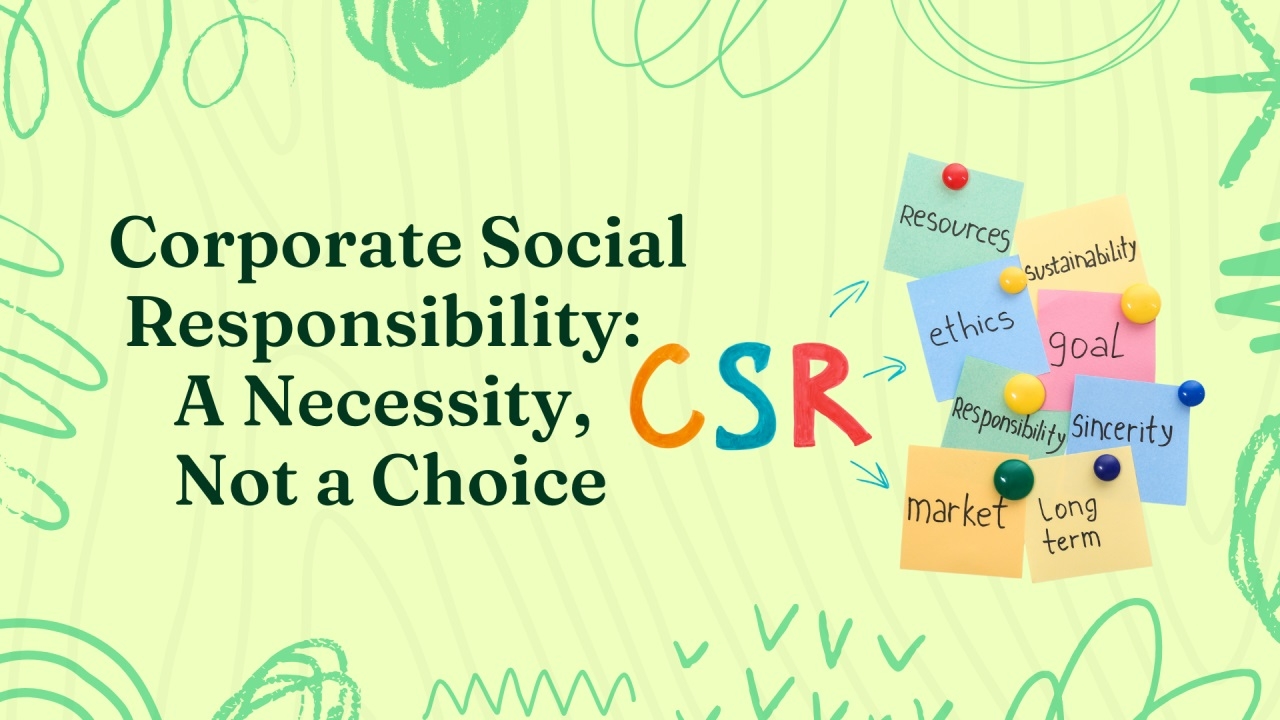Corporate Social Responsibility: A Necessity, Not a Choice
Total Views |
In today’s business world, Corporate Social Responsibility (CSR) is no longer an option—it’s an expectation. Companies are no longer judged solely on their profitability but also on their impact on society and the environment. Consumers, employees, and investors increasingly align themselves with businesses that prioritize ethical practices, sustainability, and community engagement.

Why CSR Matters More Than Ever
1. Enhancing Brand Reputation
A company’s reputation is one of its most valuable assets. Organizations that actively engage in CSR initiatives—whether through environmental sustainability programs, community service, or ethical labor practices—build trust and goodwill with stakeholders.
2. Attracting and Retaining Talent
Employees want to work for organizations that align with their values. A strong CSR strategy fosters employee engagement, boosts morale, and increases retention. Companies that invest in social initiatives often see higher productivity and workplace satisfaction.
3. Meeting Consumer Expectations
Today’s consumers are more socially conscious than ever. They prefer brands that demonstrate responsibility towards people and the planet. Businesses that ignore this shift risk losing market share to competitors who integrate CSR into their operations.
4. Regulatory Compliance and Risk Management
Governments and regulatory bodies are implementing stricter environmental and social governance (ESG) policies. Companies that proactively address these aspects avoid legal issues, penalties, and reputational damage.
5. Driving Long-Term Profitability
Contrary to the belief that CSR is a financial burden, it can drive profitability in the long run. Sustainable practices often lead to cost savings, increased customer loyalty, and new business opportunities.
Making CSR a Core Business Strategy
CSR should not be an afterthought—it should be embedded into the company’s DNA. Here’s how businesses can integrate CSR effectively:
- Align CSR with Business Goals – Identify initiatives that complement your company’s mission and values.
- Engage Stakeholders – Involve employees, customers, and partners in CSR activities for greater impact.
- Measure and Communicate Impact – Regularly track and report CSR efforts to maintain transparency and accountability.
- Innovate for Sustainability – Adopt eco-friendly processes, ethical sourcing, and responsible production methods.
Corporate Social Responsibility is not just about giving back—it’s about creating a sustainable, ethical, and socially responsible business model. Companies that embrace CSR as a necessity rather than a choice will not only contribute to a better world but also build a resilient, future-ready brand.

